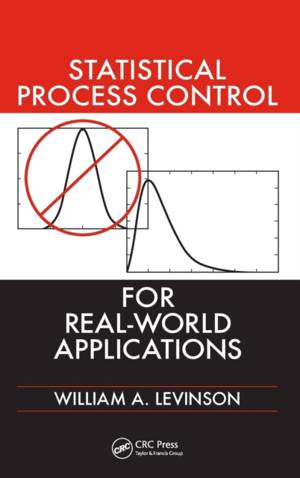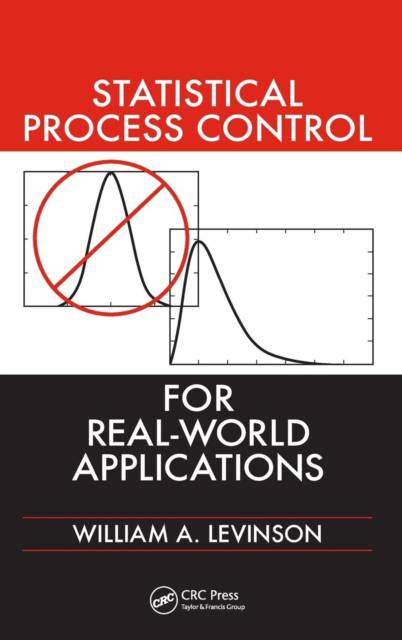
- Retrait gratuit dans votre magasin Club
- 7.000.000 titres dans notre catalogue
- Payer en toute sécurité
- Toujours un magasin près de chez vous
- Retrait gratuit dans votre magasin Club
- 7.000.0000 titres dans notre catalogue
- Payer en toute sécurité
- Toujours un magasin près de chez vous
Description
The normal or bell curve distribution is far more common in statistics textbooks than it is in real factories, where processes follow non-normal and often highly skewed distributions. Statistical Process Control for Real-World Applications shows how to handle non-normal applications scientifically and explain the methodology to suppliers and customers.
The book exposes the pitfalls of assuming normality for all processes, describes how to test the normality assumption, and illustrates when non-normal distributions are likely to apply. It demonstrates how to handle uncooperative real-world processes that do not follow textbook assumptions. The text explains how to set realistic control limits and calculate meaningful process capability indices for non-normal applications. The book also addresses multivariate systems, nested variation sources, and process performance indices for non-normal distributions.
The book includes examples from Minitab(R), StatGraphics(R) Centurion, and MathCAD and covers how to use spreadsheets to give workers a visual signal when an out of control condition is present. The included user disk provides Visual Basic for Applications functions to make tasks such as distribution fitting and tests for goodness of fit as routine as possible. The book shows you how to set up meaningful control charts and report process performance indices that actually reflect the process' ability to deliver quality.
Spécifications
Parties prenantes
- Auteur(s) :
- Editeur:
Contenu
- Nombre de pages :
- 272
- Langue:
- Anglais
Caractéristiques
- EAN:
- 9781439820001
- Date de parution :
- 21-12-10
- Format:
- Livre relié
- Format numérique:
- Genaaid
- Dimensions :
- 157 mm x 231 mm
- Poids :
- 589 g

Les avis
Nous publions uniquement les avis qui respectent les conditions requises. Consultez nos conditions pour les avis.






